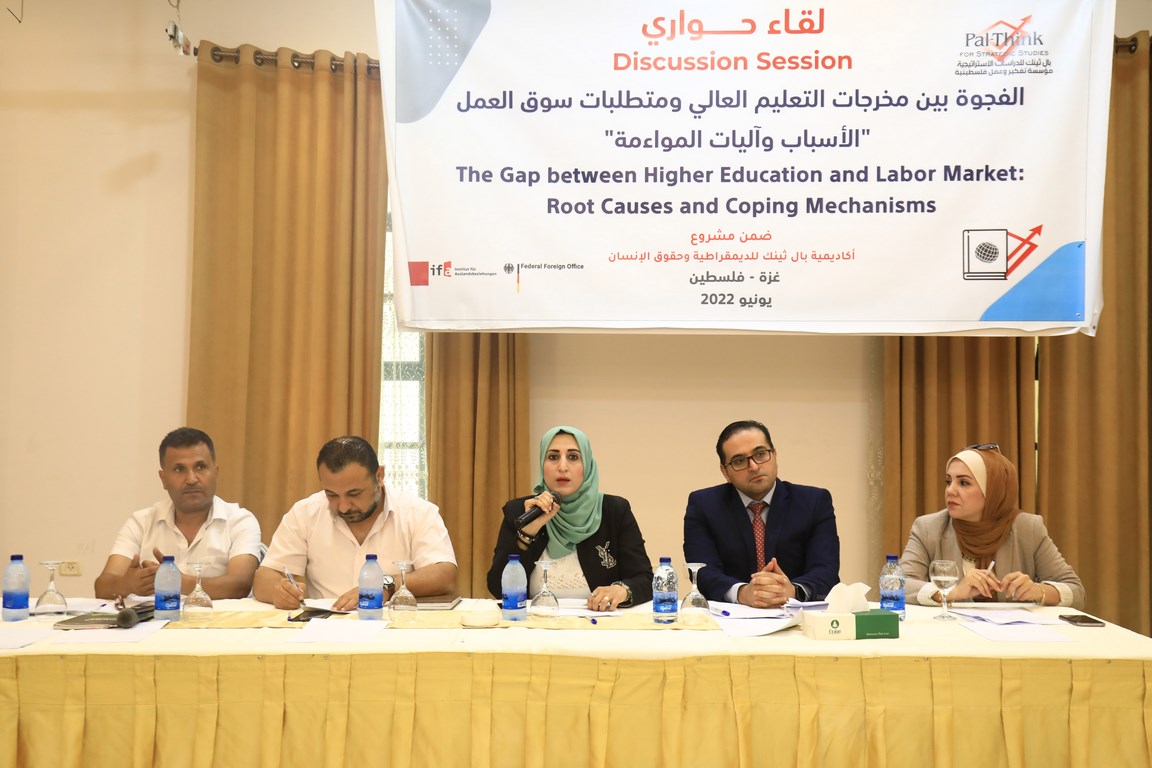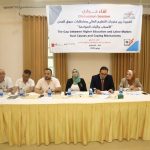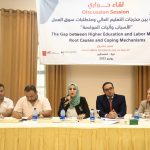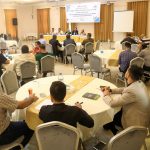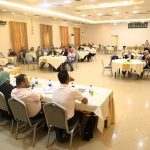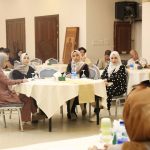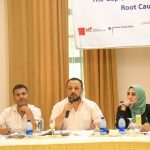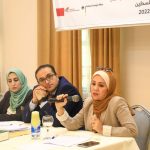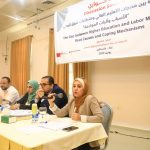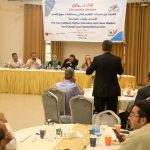Pal-Think for Strategic Studies held a discussion session titled The Gap between Higher Education and Labor Market: Root Causes and Coping Mechanisms. This session is within the activities of the project entitled “Pal-Think Academy for Democracy and Human Rights”, supported by the German Federal Foreign Office’s funds by ifa (Institut für Auslandsbeziehungen), Funding Programme zivik.
At the outset of the session, Pal-Think, represented by its director and founder Omar Shaban, welcomed the speakers and attendees from the civil society organizations, private, and public sectors, active youth, academics, public policy experts, and eco-political analysts. Shaban emphasized that Pal-Think is an independent and non-partisan think-and-do tank that was established to produce knowledge to achieve prosperity and bring positive change to the ground.
He affirmed the significance of this discussion as there are roughly 86000 potential high school graduates who will need thousands of jobs, wondering how this would be available.
Shanan concluded that unemployment has been skyrocketing, causing much depression and hopelessness. However, he referred to that the Palestinian youth still have aspirations, passion, and a future to build; consequently, decision-makers, duty bearers, and stakeholders should join efforts to respond to such protracted issues facing youth.
In turn, Mr Bahjat Al-Helou, Awareness and Training Coordinator at the ICHR, said that the rights of work and education in Palestine are constantly violated although international covenants guarantee them including the United Nation’s SDGs.
He explained that several rights must be fulfilled such as geographical and physical access to education, education for all, the adaptation of educational buildings for people with disabilities (PWD), and adjustment of the educational process in light of the unexceptional changes in the world.
In his part, Dr Abdullah Abu Al-Hunud, economist, stated that the number of graduates from Palestinian higher education institutions hit 42,000 in 2019. In return, the local Palestinian market only avails an average of 8,000 job opportunities annually, which resulted in unprecedented shrinking spaces for youth and disappointment. 83% of youth work in the informal economy and 54% of employment in Gaza is unorganized, he added.
Dr Abdullah concluded that fresh university graduates have been experiencing a state of joblessness due to the resurgence of unemployment rates hitting 53%; the bulks were females (66%) and males unemployment reached (39%). As for the region, the unemployment rate for young graduates in the West Bank was 36%, compared to 74% in the Gaza Strip. These numbers reflect the fragility of the Palestinian economy and its inability to create enough job opportunities for graduates.
Furthermore, Dr Mahmoud Assaf, Assistant Professor of Educational Planning, stressed that higher education institutions have been exerting modest efforts towards academic and educational development in Palestine. In addition, the state of “unfair” competition produces uncreative students who only want to obtain a university degree without genuine academic and practical experience.
Assaf concluded that efforts should be joint and harmonized to refine the quality of education in the Palestinian educational institutions, recommending that universities should set certain criteria for admissions, conduct placement tests, and provide preparatory courses to ensure that students acquire the necessary knowledge during their studies
In the closing statement, Ms Walaa El-Hayek, Project Coordinator at the Society of Women Graduates, indicated that business incubators are essential for developing entrepreneurial ideas. Also, they tremendously contribute to establishing small projects, fighting unemployment, and providing real job opportunities, especially for vulnerable groups. She continued that Palestine includes six incubators operating in the West Bank and Gaza Strip, and stressed their key role in improving the lives of thousands of students and graduates.
The session was regarded as an outlet for attendees to share their views and express their interest in the axes mentioned above. Many questions and interventions have arisen to discuss: The impact of the Palestinian division on the widening gap between higher education and the labour market, the repercussions of the financial deficits on the development of the quality of education and the ripple effects of ill-management at universities on the labour market.

